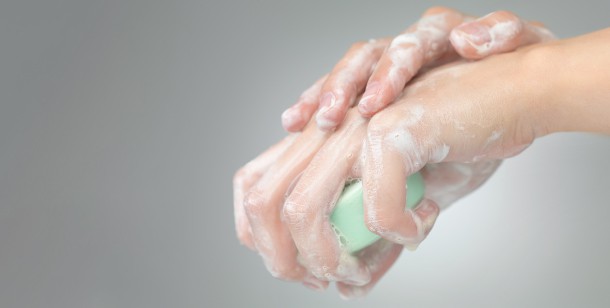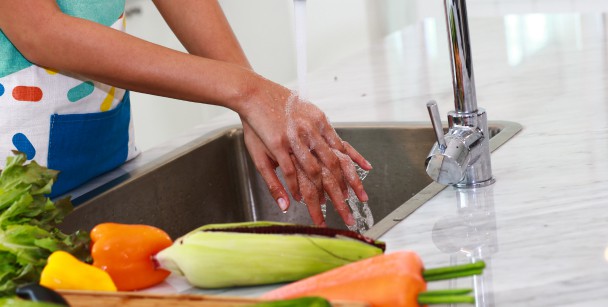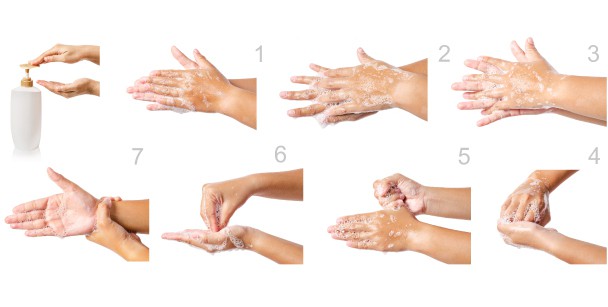Probably enough for it to feel like a broken record, right? With the current COVID-19 situation however, Coronavirus washing hands for safety is becoming a highly discussed topic. Parents, teachers, friends, colleagues, doctors, and other medical professionals alike have all undoubtedly said the same thing to you so many times that you never want to hear those words again: “Remember to wash your hands!” And yet, many of us either don’t do so regularly, don’t do so properly, or don’t know how to thoroughly clean our hands with soap and water. So you might be asking, what’s the importance of washing your hands?
We’ve probably also seen (and hopefully never been!) those people who leave the bathroom without even turning on the faucet. Unfortunately, this isn’t just unhygienic, it’s downright dangerous…especially during a virus outbreak.
Why Is It So Important to Wash Your Hands?
Everyone who’s ever told you to wash your hands wasn’t just doing so because they liked the sound of their own voice. Washing your hands frequently and properly is your first line of defense against harmful bacteria and viruses that can make you sick, sometimes fatally. Having good hand hygiene can help you stay healthy, prevent illness, and prevent the spread of germs at the faucet. All it takes to get sick is for someone to touch a germ-infected surface and touch their face afterward, so keeping your hands clean truly is the best defense against illness.
WANT TO READ MORE ABOUT THE CORONAVIRUS:
- Is Houston Prepared for A Coronavirus Outbreak
- What to Know if You Think You’re Infected
- What to Consider While Traveling
- Understanding the Coronavirus
When Should You Wash Your Hands?
While washing your hands at any time isn’t a bad idea, there are some key activities that put you at higher risk for coming into contact with all types of germs. Before, during, and/or after these activities are the best times to make a habit of washing your hands properly. Some of these times include:
- When preparing food (Before, during, and after)
- Before eating or drinking
- Before and after taking care of someone sick with vomiting, diarrhea, or respiratory sputum (phlegm, spit, and mucus)
- After going to the bathroom or coming into contact with any related materials (i.e. diapers, female hygiene products, used undergarments, etc.)
- After coughing, sneezing, or blowing your nose (especially if your hands directly came into contact with any fluids)
- After touching an animal, animal products and waste, or animal food or treats
- After touching trash
Naturally, there are plenty more times when it would be best to wash your hands, but the general rule of thumb beyond the guidelines listed above is: If you’re not sure, just wash them! And, keep in mind, the Food and Drug Administration (FDA) has confirmed that the soap you use does not have to specifically say “antibacterial soap” on the label. Technically, any soap is antibacterial, so the label is redundant. Additionally, since not all of the germs you come into contact with are bacterial (many are viral), the antibacterial factor of soap is less important than the general cleansing qualities soap contains.
W.H.O. Hand Hygiene: 7 Steps
The World Health Organization (WHO) has provided the public with a 7-step process for properly and thoroughly washing your hands. Try following these steps every time you go to the sink and see how less frequently you get sick.
- Wet your hands with clean running water, warm or cold, using a generous amount of soap to create a lather.
- Rub your palms together in a circular motion to scrub them clean.
- Take the palm of one hand and scrub the back of your other hand with it, then switch. Make sure you scrub both hands between your fingers as well.
- Link your fingers and cup your palms together, scrubbing your palms with each other once again.
- Cup your fingers and hook them over each other with one hand on top and one on the bottom so the backs of your fingers rub against your palms. Scrub the backs of your fingers this way.
- Don’t forget the thumbs! With your thumb out, close your other hand around it and rotate in a circular motion, then repeat on the other hand.
- Rub your palms with straightened fingers.
After you’ve followed these steps, make sure you wash all of the suds off of your hands. Then, dry your hands with a clean towel or air dry them until your hands are dry. As far as how long you should spend washing your hands each time, sing the Happy Birthday song in your head while you wash and dry once you’ve finished the song. Singing the song out loud is an especially effective method when encouraging young children to wash their hands correctly as well.
If you’re not in a position to properly wash your hands with soap and water, you should go ahead and use an alcohol-based hand sanitizer, specifically one with at least 60% alcohol. This way, even though you should still wash properly as soon as you’re able, you can at least kill any germs that were already on your hands.
If you feel as though you or a loved one are experiencing similar symptoms associated with the coronavirus, do not hesitate to visit the nearest Village Emergency Center near you to be thoroughly tested. At Village Emergency Centers, we have a full staff of board-certified physicians ready at a moment’s notice. No matter the time of day, have confidence you’ll receive expert care without the wait.



